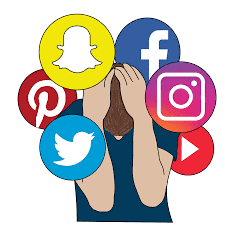How does social media affect mental health?
May 17, 2023
This essay explains the effects social media can have on mental health.
Social media is now a ubiquitous part of our lives. We constantly use it to share news, connect with friends, find entertainment and stay informed about current events. But while there are plenty of benefits to using social media, it’s important to be aware of the potential downsides as well — especially when it comes to mental health.

Recent studies on the impact of social media on mental health have uncovered some disturbing trends. For example, excessive amounts of time spent online has been linked to higher levels of depression and loneliness in adolescents and young adults. This is partly due to the fact that people compare themselves unfavorably to others based on their posts and images, leading them to feel inadequate or less attractive.
Social media can also be a breeding ground for cyberbullying, which can cause psychological damage to its victims. Victims of cyberbullying often suffer from depression, anxiety and low self esteem. They may withdraw from friends and family out of fear that their bully will target them again.
It’s important to remember that not all social media use is bad — it just needs to be done in moderation. Limiting the amount of time you spend online and being aware of how your activities on social media affect your mood, both positively and negatively, is key. Additionally, if you witness or are a victim of cyberbullying, take steps immediately to address it before it spirals out of control.
In conclusion, while social media can be an important part of our lives, it’s essential to use it responsibly and be aware of the potential negative impacts it can have on mental health. If used thoughtfully and in moderation, however, social media can continue to be a powerful tool for connecting with friends, staying informed and entertaining ourselves.
